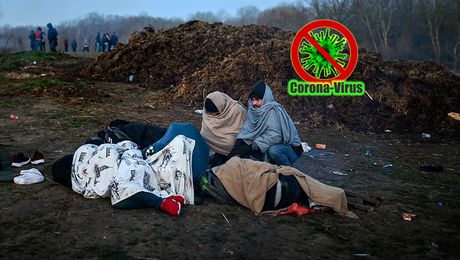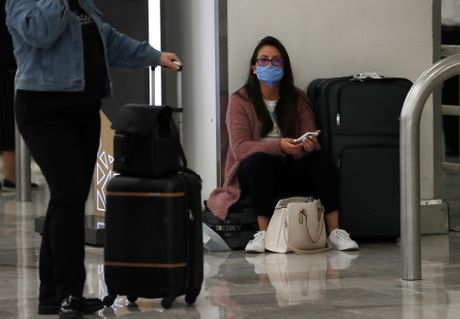We investigated if migrants are checked for coronavirus in Serbia: Illegals represent biggest danger

All migrants who enter our country legally are being controlled for the novel coronavirus, as well as for other diseases they could potentially transmit, Professor Branislav Tiodorovic, an epidemiologist, has told Telegraf.rs. The problem, however, are those who illegally enter our area, and who, according to our interlocutor, pose a danger.
Europe is in the midst of a new refugee wave of migrants, who, since 2015 and their largest influx, have been constantly coming to our country in larger or smaller groups.
Professor Tiodorovic says that, when we talk about the new virus, the countries they come from are not currently a problem. The problem are those countries they pass through during their 3-4-month journeys, where COVID-19 has appeared in the meanwhile.
"All migrants who cross (into Serbia) at Presevo, and the same goes for Dimitrovgrad, must be controlled. Otherwise, this is also done for other diseases - resistant tuberculosis, malaria, AIDS," Tiodorovic told Telegraf.rs.
Out of fear that they would bring in coronavirus, Hungary closed its transit zone to migrants two days ago. Picking up on this, our interlocutor says that closing borders is not good precisely because of those entering the country illegally.
"When the border is closed, migrants enter the country illegally and uncontrollably. Borders should not be closed. This is wrong, and illegal migrants are, in fact, the greatest danger. Otherwise, we should not be afraid of people arriving from Iran, even though there have been more than 40 deaths there. And why? People arriving from Iran don't come here directly from there, that is, they had left and made their way to Turkey months earlier... But since there are infected persons in Greece this current movement of migrants calls for even more vigilance. We should remember that coronavirus occurs in 5, 6 to 10 days (after infection)," explains our interlocutor.

He recalls that migrants can also bring us AIDS, malaria, resistant tuberculosis, polio and other diseases against which Serbia vaccinates children, but not Ebola.
"Syria was a country where vaccination was excellent in peacetime, but the war that has been going on for years disrupted the whole situation. So they can also bring us polio, and the worst thing that threatens us is resistant tuberculosis, which is tuberculosis that has a high level of resistance to drugs. They can bring us malaria as well, we have to think about AIDS, while fortunately, they can't bring us Ebola," Dr. Tiodorovic told Telegraf.rs.
There have been no cases of coronavirus infections in Serbia so far, where more than 50 people have been tested to date.
VIDEO: Follow the guidelines of the Ministry of Health and reduce the risk of coronavirus infection
(LJ.R. - lj.racic@telegraf.rs)
Video: Novinar Telegrafa "svat" na grčkoj svadbi: Oficiri nevestu svog kolege dočekali zveketom mačeva
Telegraf.rs zadržava sva prava nad sadržajem. Za preuzimanje sadržaja pogledajte uputstva na stranici Uslovi korišćenja.

